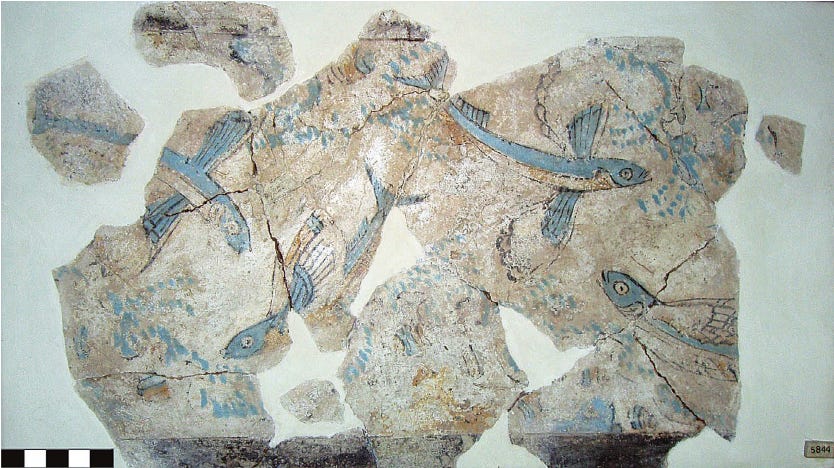The world as act and process
> We must look at it dialectically, and say that man is indeed determined, but that it is open to him to overcome necessity, and this act is freedom.
The plant is pure process; as is the animal, and mostly so are we. This is the realm of determinism. Life is a process; from our perspective, the most important. But at base, the All is a process—i.e., an undivided wholeness in flowing movement—upon which consciousness floats, as a bubble reflecting the world around it. This total process is the realm of matter and necessity.
The category of processes includes everything from the inertia of a physical object to that of a relationship or social institution; it is all of habit and practical knowledge, as the flower does not choose to bloom so neither does the dancer consciously determine the flow of forms which they throw off. The mechanical, organic, and social are alike all composed of processes.
Against this there is in us the realm of freedom and spirit. The two realms are not so much separate as a polarity; yet one in which process is somehow primary—consciousness depends on the maintenance of various organic processes, whereas basic physical processes (including life) are not dependent upon consciousness. Yet we are amphibious, flying fish that may by our leaping punctuate this process.
I take consciousness to be the capacity to ‘step back’ from this process. Here freedom might be defined in two stages, more or less following William James: first, ‘free’; then will. We step back to cycle through a sequence of imagined possibilities. Notably this ‘cycling’ is itself a process, so here we are not entirely ‘free’ either; moreover, it is necessarily sequential with only one entertained at a time.
I feel here this might entail a matter of choice, as deciding between an object held in each hand; so there is perhaps comparison also, yet here again it is one ‘object’ (the relation between the two). Either way, the point is that we cycle through possibilities and then assent to one; at which this conscious act ‘punctuates’ process.
Freedom is thus a matter of imagination, of knowledge, of judgment—in other words, a matter of creative taste. This is obvious in the artist. Yet more, creativity is the underlying process; for this is always a dialectic of process and conscious act. The painter punctuates process with their brush, then steps back to inspect their work before once more approaching; and so on.
A possibility presents itself to us, then is subjected to judgment as informed by taste. Here there is the possibility that we may refine our taste, in terms of the creative process which feeds into freedom; but also we might refine the process itself, as when we seek to shape ourselves. There is freedom here, yes, though nothing absolute; yet nor can this be fairly called determinism.
One may thus be determined by our lower selves, that of biological processes; or we may be determined by social inertia; we may equally be determined by emotion or perception, whatever. The task seems always to dance carefully, to dance well—does this make sense?


